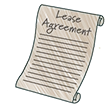Menu

CALL FOR A FREE CONSULTATION
Exceptional Legal Representation Throughout
Long Island and New York, Since 1993.

CALL FOR A FREE CONSULTATION
Exceptional Legal Representation Throughout
Long Island and New York, Since 1993.









Landlord-Tenant Litigation enables individuals or businesses to address disputes related to leased or rented properties. These disputes often involve critical issues such as eviction or the collection of substantial unpaid rent. Given the significant impact on both parties, it is advisable to seek the expertise of an experienced attorney to handle Landlord-Tenant Litigation effectively.
 Landlord-Tenant Law is one of our firm’s key areas of expertise. We represent both landlords and tenants in various legal proceedings before the Landlord-Tenant Court and the New York Supreme Court. Landlord-Tenant Litigation enables individuals or businesses to resolve disputes related to leased or rented properties, particularly in cases involving eviction or the collection of significant unpaid rent. Given the critical impact on both parties, it is highly recommended that these cases be handled by an experienced attorney. Landlord-Tenant Court cases involve leased or rented properties and can affect substantial interests. These cases may involve disputes related to the following:
Landlord-Tenant Law is one of our firm’s key areas of expertise. We represent both landlords and tenants in various legal proceedings before the Landlord-Tenant Court and the New York Supreme Court. Landlord-Tenant Litigation enables individuals or businesses to resolve disputes related to leased or rented properties, particularly in cases involving eviction or the collection of significant unpaid rent. Given the critical impact on both parties, it is highly recommended that these cases be handled by an experienced attorney. Landlord-Tenant Court cases involve leased or rented properties and can affect substantial interests. These cases may involve disputes related to the following:
Traditional and Non-Traditional Residential Rental Agreements – Landlord-tenant disputes commonly arise in situations where formal leases are signed for apartments, rooms, houses, or other residential spaces. However, disputes can also occur in non-traditional rental situations, such as rented rooms, basements, and other accommodations. Some of these are rented on a month-to-month basis without a formal lease, while others may not be permitted under local ordinances but still fall under the jurisdiction of the Landlord-Tenant Court.
Holdover Tenants from Foreclosure Sales – A foreclosure auction, typically held on the courthouse steps, is the final stage of a foreclosure case. The distressed property is auctioned and sold to the highest bidder. After a foreclosure sale, the previous owner is no longer legally recognized as the property owner and is considered a “holdover tenant.” The high bidder at the sale can initiate an eviction action against the holdover tenant, who may be forcibly removed due to a lack of legal rights to remain. If no sufficient bids are made at the foreclosure sale—usually conducted at a local courthouse—the mortgage holder often becomes the new owner. The buyer can then seek an eviction warrant from the Landlord-Tenant Court, requiring the tenant to vacate the premises unless a valid legal objection exists on equitable, substantive, or technical grounds.
Cooperative Apartment Litigation – Unlike condominiums, where tenants hold a deed, cooperative (co-op) apartments are owned through shares, with tenants leasing their units under a proprietary lease. Co-op Boards often initiate eviction actions in these cases.
Commercial Rental Space – Unlike residential rentals, commercial rental spaces are occupied by businesses rather than private individuals. Since businesses are assumed to be more sophisticated, courts tend to be stricter with commercial litigants—both landlords and tenants. In commercial lease disputes, litigation can be complex, with uncertain outcomes unless strong arguments and supporting evidence are presented. Most commercial cases involve both a corporate landlord and a corporate tenant. There is often ambiguity regarding the landlord’s obligation to mitigate damages, as well as the extent of the corporate tenant’s principal’s personal liability under a personal guarantee. This liability may be conditionally limited by a “good guy clause.”
Issues Litigated in Landlord-Tenant Court – Most lease-related cases are heard in Landlord-Tenant Court. However, significant exceptions may require seeking a stay in the state Supreme Court. Additionally, cases involving bankruptcy or matrimonial matters are handled by specialized courts. Lease disputes may also include jurisdictional clauses or alternative dispute resolution procedures, such as mediation or arbitration. Beyond simple rent collection and evictions, issues in Landlord-Tenant Court may involve building code violations, inadequate building services, and lease compliance disputes beyond rent payment, such as habitability concerns, nuisances, or constructive eviction.
 The Landlord-Tenant Parts of the District Courts in Brooklyn and Queens, along with the Housing Part of the Civil Courts in NYC, the Bronx, Brooklyn, Queens, and Staten Island, handle Housing Court cases.Brooklyn and Queens has one. The court case will be heard at the location corresponding to the property in question.
The Landlord-Tenant Parts of the District Courts in Brooklyn and Queens, along with the Housing Part of the Civil Courts in NYC, the Bronx, Brooklyn, Queens, and Staten Island, handle Housing Court cases.Brooklyn and Queens has one. The court case will be heard at the location corresponding to the property in question.
A legal proceeding begins when the property owner or landlord files a Petition. Once you receive a Petition, you typically have a short timeframe—usually 20 to 30 days—to file a Motion to Dismiss or an Answer stating all of your defenses and counterclaims. If you fail to file a Motion to Dismiss or Answer within the designated period, your ability to defend against the action will be significantly weakened, as the Court may deem those defenses waived.
The attorneys at the Law Office of Ronald D. Weiss have extensive experience handling various Housing Court matters, including non-payment of rent cases, holdover/eviction actions, cooperative eviction actions due to violations of house rules, bylaws, or proprietary leases, nuisance eviction actions, harassment claims, actions to correct housing code violations, and disputes related to alleged breaches of commercial leases.
In cases involving commercial lease violations, when a Notice to Cure is served to the lessee, an urgent application for a Yellowstone injunction must be filed with the Supreme Court to pause the cure period. The timeframe to obtain a Yellowstone injunction is extremely limited, requiring immediate action.
 Before proceeding with any legal action, the landlord must determine whether their primary objective is to evict the tenant or to collect rent. If the goal is to recover unpaid rent, the process is referred to as a “non-payment action.”
Before proceeding with any legal action, the landlord must determine whether their primary objective is to evict the tenant or to collect rent. If the goal is to recover unpaid rent, the process is referred to as a “non-payment action.”
To initiate a non-payment action, the landlord must first serve the tenant with a 14-day written demand for rent. Additionally, if the rent remains unpaid for five days past its due date, the landlord is required to send the tenant a written notice via certified mail informing them of their failure to pay.
Failure to serve these notices—or to do so properly—may result in the dismissal of the non-payment action.
 A “holdover action” occurs when a landlord seeks to regain possession of a property. The type of notice required depends on the specific basis for the action, which may include:
A “holdover action” occurs when a landlord seeks to regain possession of a property. The type of notice required depends on the specific basis for the action, which may include:
Notice Requirements for Lease Expiration
If a holdover action is based on the expiration of a lease, the landlord must provide a 30-day, 60-day, or 90-day notice before commencing legal action. The required notice period depends on the length of the tenant’s occupancy:
Notice Requirements for Post-Foreclosure Evictions
If the property was acquired at a foreclosure sale, the new owner must follow specific procedures to evict the former owner or tenants:
Proper Service of Notices
These notices must be delivered using legally recognized methods, such as:
Failure to properly serve these notices (e.g., simply leaving them at the tenant’s doorstep) could result in the dismissal of the holdover action for improper service.
 The Petition is the legal document that formally initiates an action in Landlord-Tenant Court. In these cases:
The Petition is the legal document that formally initiates an action in Landlord-Tenant Court. In these cases:
All adult occupants of the property must be properly served. If the landlord is unaware of a resident’s name, “John Doe” or “Jane Doe” may be used in the Petition. If any court documents are delivered to a tenant or occupant, it is crucial to consult and hire an attorney immediately, as filing an Answer or a Motion to Dismiss may be necessary.
Types of Housing Court Actions
There are two primary types of Housing Court cases:
Non-Payment Actions – These seek to collect past-due rent and may result in:
Holdover Actions – These are used when a landlord seeks to regain possession of the property, regardless of rent payment. The landlord may request:
Why Holdover Actions Can Be Safer for Landlords
If a tenant is experiencing financial hardship, collecting a money judgment may be difficult, especially if the tenant:
In such cases, a Holdover Action is often the safer legal route, as it ensures the landlord regains possession of the property, which is usually the primary goal.
Our Approach to Non-Payment and Holdover Cases
Our experienced landlord-tenant attorneys thoroughly assess each case to strategize the best course of action. With over 30 years of experience in Housing Court, we offer more than just legal representation—we provide strategic planning to achieve the best possible outcome for our clients.

At The Law Office of Ronald D. Weiss, P.C., we represent individuals and businesses facing eviction from their landlords. If you are served with an eviction lawsuit, you have the right to fight back in court. Our firm assists clients in responding to the petition that initiates a landlord-tenant lawsuit, which must be done promptly after being served.
The Response: Pre-Answer Considerations
A Motion to Dismiss requires a strong understanding of both the facts and the law. This is the tenant’s first opportunity to raise any defenses—if a defense is not asserted now, it may be waived and cannot be used later.
For example:
Non-Payment Actions: Answer or Motion to Dismiss
If served with a Petition and Notice of Petition in a non-payment action, the tenant must file either an Answer or a Motion to Dismiss. Ignoring the Petition could result in:
Key Defenses and Counterclaims
A tenant may challenge who violated the lease first—the landlord or the tenant. Additionally, there may be legal issues regarding:
While these defenses and counterclaims can sometimes be raised, many signed leases prohibit tenants from asserting them in court.
Extending and Defending the Legal Process
By actively defending a Landlord-Tenant proceeding, tenants can:
For landlords, winning a case is easier if they avoid procedural disputes and demonstrate clear, uncontested facts and legal grounds for possession. However, if a tenant successfully raises legal and procedural challenges, the case can be delayed or even dismissed.
At The Law Office of Ronald D. Weiss, P.C., our experienced attorneys can help navigate these complex legal matters and develop the best possible defense for your case.
 In these trying times, the Law Office of Ronald D. Weiss can assist its clients by negotiating on their behalf before, during, and after the Landlord-Tenant Proceeding in an attempt to find a solution, cut costs and expenses, and eliminate uncertainty. Both parties frequently try to balance their positions by reaching a compromise. For example, when a tenant has a weak case but only needs a short time to stay, a clause is frequently added to postpone eviction so that the tenant has enough time to find new housing and make plans to move. Negotiations frequently center on the quantity of time involved, and in cases where it is brief, the landlord may pay the renter to vacate; in cases where it is more extensive, the tenant may be required to pay the landlord a usage and occupancy fee that is equal to a fair rental rate. However, if the landlord is finding it more difficult to evict the tenant, it must ensure that its position in court is unimpaired because even minor technical errors or problems can cause the eviction process to drag on longer or force the landlord to be more accommodating in attempts to reach a settlement in the hopes that doing so will be less expensive than taking the case all the way to trial.
In these trying times, the Law Office of Ronald D. Weiss can assist its clients by negotiating on their behalf before, during, and after the Landlord-Tenant Proceeding in an attempt to find a solution, cut costs and expenses, and eliminate uncertainty. Both parties frequently try to balance their positions by reaching a compromise. For example, when a tenant has a weak case but only needs a short time to stay, a clause is frequently added to postpone eviction so that the tenant has enough time to find new housing and make plans to move. Negotiations frequently center on the quantity of time involved, and in cases where it is brief, the landlord may pay the renter to vacate; in cases where it is more extensive, the tenant may be required to pay the landlord a usage and occupancy fee that is equal to a fair rental rate. However, if the landlord is finding it more difficult to evict the tenant, it must ensure that its position in court is unimpaired because even minor technical errors or problems can cause the eviction process to drag on longer or force the landlord to be more accommodating in attempts to reach a settlement in the hopes that doing so will be less expensive than taking the case all the way to trial.
Under the Housing Stability & Tenant Protection Act of 2019, if a tenant offers to pay the full amount of rent arrears before the court date, the landlord must accept the payment. Previously, landlords had the discretion to reject the payment and proceed with legal action.
Despite this legal amendment, the respondent must still assert defenses and protect their rights by timely filing a motion to dismiss or submitting an answer.
If you appear in court on your first scheduled date without an attorney, you may request an adjournment. By law, the court must grant a postponement of at least 14 days to allow you time to consult with and hire legal counsel.
Brooklyn and Queens generally encourage both parties to negotiate a settlement. However, tenants and occupants appearing pro se (without legal representation) are often at a disadvantage, as landlords are typically represented by legal counsel. If a settlement is reached, both parties sign a Stipulation of Settlement, a legally binding contract. Once signed, the judge will “so-order” the agreement, meaning any violation constitutes a breach of a court order, requiring further legal action.
As experienced landlord-tenant attorneys, we strongly advise against unrepresented tenants signing a Stipulation of Settlement. Many tenants facing eviction later realize they cannot comply with the terms of the agreement. If a tenant or occupant agrees to vacate a property, they should have skilled legal representation to negotiate a fair settlement that allows them to leave with dignity. Additionally, our firm is well-versed in negotiating “Cash for Keys” settlements, where tenants receive financial compensation in exchange for surrendering the property.
Generally, the court discourages trials unless no other resolution is possible. Trials are typically held to address factual disputes, such as issues related to service of notices, payment history, or whether a tenant’s actions led the landlord to reasonably determine the lease was in default. Landlord-tenant court trials are usually brief and straightforward, requiring thorough preparation and organization.
If a settlement is reached during the hearing, the tenant must strictly adhere to the terms outlined in the stipulation. However, if a resolution is not possible, the following options may be available:
Bankruptcy Stay – Filing for bankruptcy can temporarily halt all legal proceedings, including evictions. However, before pursuing this option, a litigant should consult with an attorney to explore their choices, including whether bankruptcy can be used to delay eviction before a warrant is issued. Since different types of bankruptcy exist, it is crucial to assess how each applies to the client’s specific situation and its impact on the eviction process.
Supreme Court Stay – Another way to prevent eviction is by obtaining a stay from the Supreme Court. Unlike landlord-tenant court, which does not grant injunctive relief, a stay must be requested in the Supreme Court. For example, filing an Order to Show Cause in the Supreme Court to vacate a foreclosure sale and request a stay of execution can delay eviction, even if the holdover tenant is a former homeowner whose property was sold in foreclosure.
Appellate Division Stay – If a tenant is appealing a ruling from the Supreme Court or Landlord-Tenant Court, the final option to stay an eviction is to request relief from the Appellate Division. However, this requires prevailing in an Order to Show Cause before the Appellate Division, which is difficult unless there are clear grounds for appeal based on issues in a prior ruling.
COVID Stay – The COVID-19 pandemic has led courts to exercise caution when evicting infected or high-risk individuals without allowing them adequate time to secure alternative housing. If a tenant is at risk due to age, medical conditions, or other factors, the court may take steps to prevent them from losing their home abruptly.
 A warrant of eviction is a legal document signed by a Housing Court Judge in New York City or a District Court Judge in Brooklyn and Queens, granting the Sheriff or Marshal the authority to enforce an eviction. When a tenant is evicted, the locks on the property may be changed, the premises boarded up, and their personal belongings either left on the curb or placed in temporary storage at their expense.
A warrant of eviction is a legal document signed by a Housing Court Judge in New York City or a District Court Judge in Brooklyn and Queens, granting the Sheriff or Marshal the authority to enforce an eviction. When a tenant is evicted, the locks on the property may be changed, the premises boarded up, and their personal belongings either left on the curb or placed in temporary storage at their expense.
There are two primary ways to halt the eviction process:
Under the Rent Law of 2019, all Notices of Eviction in New York State must be at least 14 days in length. Previously, tenants in Brooklyn and Queens only had 72 hours’ notice before eviction, making this an important extension.
Our firm represents clients seeking a stay of eviction through an Order to Show Cause in the Supreme Court after landlord-tenant proceedings conclude. Unlike landlord-tenant courts, which typically do not respond to Orders to Show Cause, only the State Supreme Court can grant a stay of eviction in such cases. A judge may postpone the issuance or execution of an eviction warrant for up to one year following a housing court judgment. To obtain this extension, the tenant or occupant must formally request relief under Real Property Actions and Procedures Law (RPAPL) Section 753.
 Similar to foreclosure relief, several moratoriums were implemented in New York State to prevent or delay evictions, allowing homeowners to remain in their homes during the COVID-19 pandemic. Initially, the moratorium was set to expire on January 1, 2020 but was later extended.
Similar to foreclosure relief, several moratoriums were implemented in New York State to prevent or delay evictions, allowing homeowners to remain in their homes during the COVID-19 pandemic. Initially, the moratorium was set to expire on January 1, 2020 but was later extended.
On September 28, 2020, Governor Andrew M. Cuomo announced that the Tenant Safe Harbor Act would remain in effect until January 1, 2021. This law provided additional protections for residential tenants facing financial hardship due to the ongoing public health crisis. Under an Executive Order, eviction warrants issued before the pandemic were now covered by the Tenant Safe Harbor Act, further shielding tenants from removal.
On March 20, 2020, Governor Cuomo initially declared a state moratorium on residential and commercial evictions to ensure that no tenant would be displaced during the height of the public health emergency. Later, on June 30, 2020, he signed the Tenant Safe Harbor Act, which took effect immediately. This law, along with additional relief measures, provided financial support to both residential renters and landlords. Additionally:
To address commercial tenant concerns, Governor Cuomo extended the moratorium on COVID-related commercial evictions and foreclosures until October 20, 2020. This order acknowledged the severe financial impact on businesses, including retail stores and restaurants, and provided them with additional protections. The moratorium was later extended until January 1, 2021, giving commercial tenants and property owners more time to catch up on payments or renegotiate lease terms to avoid foreclosure.
 A tenant’s or landlord’s approach depends on their goals, resources, options, and needs, as well as the procedural status of the case. Typically, landlords aim to expedite eviction proceedings, while tenants seek to extend their stay. For tenants, key arguments often revolve around equity, sympathy, and procedural errors by the landlord. However, negotiating rent and move-out timelines can help both parties reach a mutually beneficial resolution. Tenants may gain additional time through litigation, bankruptcy, or negotiation.
A tenant’s or landlord’s approach depends on their goals, resources, options, and needs, as well as the procedural status of the case. Typically, landlords aim to expedite eviction proceedings, while tenants seek to extend their stay. For tenants, key arguments often revolve around equity, sympathy, and procedural errors by the landlord. However, negotiating rent and move-out timelines can help both parties reach a mutually beneficial resolution. Tenants may gain additional time through litigation, bankruptcy, or negotiation.
Conversely, landlords focus on limiting the tenant’s ability to delay eviction by carefully following legal procedures and negotiating firm but fair agreements. Their goal is to “box in” the tenant with a consensual clause that grants the tenant some additional time in exchange for an agreed-upon move-out date. Courts generally prefer amicable resolutions that allow both parties to move forward.
If a tenant requires more time, we explore multiple legal avenues:
Similarly, landlords seeking possession, eviction, or rent recovery can benefit from our extensive experience in multiple court settings related to landlord-tenant disputes.
 In landlord-tenant disputes or negotiations, we provide legal representation and counsel to help parties reach a fair settlement.
In landlord-tenant disputes or negotiations, we provide legal representation and counsel to help parties reach a fair settlement.
In urgent situations, such as an impending eviction of a vulnerable tenant, we take immediate action by seeking a stay through an Order to Show Cause or filing for bankruptcy to halt the eviction.
Conversely, if a tenant has been residing in the rental property for an extended period without paying rent, we assist landlords in expediting the eviction process while ensuring compliance with legal procedures. To secure the desired relief from the Court, we proceed strategically and fairly, ensuring that negotiated terms appear reasonable while maintaining procedural accuracy.
Regardless of whether our client is a landlord or tenant, we leverage our deep understanding of court standards and requirements to navigate the legal system effectively and achieve their objectives.
 With extensive experience in landlord-tenant litigation, bankruptcy law, appellate representation, and negotiations, we are well-equipped to assist both individual and commercial tenants and landlords in even the most challenging situations.
With extensive experience in landlord-tenant litigation, bankruptcy law, appellate representation, and negotiations, we are well-equipped to assist both individual and commercial tenants and landlords in even the most challenging situations.
Our multidisciplinary expertise and dedication to client advocacy enable us to effectively address and resolve legal issues, making us the ideal firm for representation in landlord-tenant matters.
 We offer a free initial consultation to discuss your case and legal options. If you decide to proceed, we begin with an intake meeting to gather essential documents and case details. During this stage, we familiarize ourselves with your situation, outline potential strategies, and formalize our representation through a retainer agreement.
We offer a free initial consultation to discuss your case and legal options. If you decide to proceed, we begin with an intake meeting to gather essential documents and case details. During this stage, we familiarize ourselves with your situation, outline potential strategies, and formalize our representation through a retainer agreement.
As the case progresses, our approach may evolve based on new information and changing circumstances. We prioritize client involvement, ensuring you actively participate in decision-making and future case directions.
For a free consultation, call us at (631) 212-1046 or email weiss@ny-bankruptcy.com to explore your legal options in a landlord-tenant dispute.
MONDAY – FRIDAY -8.30 AM – 8.30 PM